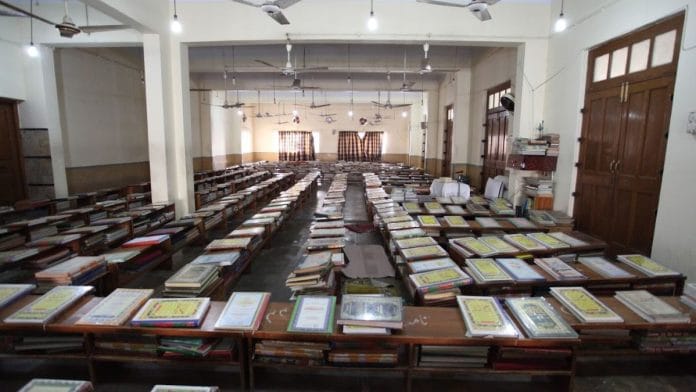New Delhi: A new bill on the administration of madrasas has sparked a political showdown between the Pakistan government and the country’s largest religious party, Jamiat Ulema-e-Islam (F). The former allies are now on opposite sides.
The controversy centres around the Societies Registration (Amendment) Bill 2024, passed by parliament in October, which aimed to grant religious seminaries more autonomy. The government had agreed to this bill in exchange for JUI-F’s support on constitutional amendments but now refuses to approve it. President Asif Ali Zardari returned the bill to parliament, citing ‘technical flaws’. JUI-F head Maulana Fazal ur Rehman accuses the government of going back on its words, now that the 26th constitutional amendment has been passed. The party reportedly sees it ‘as a conspiracy to divide the ulema’.
Editorials have labelled the government’s ‘hoodwinking’ as ‘disgusting’ and the JUI-F head Rehman agrees. He has refused to accept government ‘interference’ in madrasas and has now said that he will take to the streets in protest if the bill is not made into a law and implemented soon.
“Madressah reform should not fall prey to internecine struggles and palace intrigues; it needs consensus from all stakeholders,” Dawn’s editorial read.
Also read: UP madrasa verdict splits 2 brothers. For one, it’s a lifeline; for the other, a dead-end
The controversy
The debate over madrasa reforms is not new. Historically, madrasas were registered under the Societies Registration Act of 1860, which left them largely autonomous with little government oversight. This lack of regulation became a concern after the 9/11 attacks, as growing links between seminaries and militancy prompted the government to push for reforms.
The turning point came after the 2014 Army Public School attack in Peshawar, which led to the National Action Plan (NAP). It aimed to bring madrasas under government control.
In October 2019, the PTI-led government moved the registration of madrasas to the education departments. Religious groups welcomed this decision, as madrasas were legitimised as educational institutions. Initially, the government had proposed placing them under the Interior Ministry and provincial home departments. However, seminaries linked to JUI-F opposed the move, rejecting the inclusion of conventional education in religious seminaries due to political differences with the PTI government.
Madrasas were mostly governed by five main seminary boards representing different sects. These boards felt that their authority was being challenged by PTI’s move.
Then the government created the Directorate General of Religious Education (DGRE), a body led by a military general. It required madrasas to undergo annual audits and expand their curricula to include subjects like math and science. While over 18,000 madrasas have complied, many, especially those linked to JUI-F, have resisted these reforms.
Also read: Not madrasas, not Pakistan terror camps, India’s blasphemy killers are products of toxic hate
Concerns with new bill
The new bill aims to reverse some of the 2019 reforms, moving the registration of madrasas back to district deputy commissioners instead of the Ministry of Education. It also proposes allowing madrasas with multiple campuses to register as a single entity, reducing government interference. JUI-F sees the bill as a victory, as it regains control.
However, the government is concerned that rolling back reforms could hinder efforts to curb extremism, ensure financial transparency, and align with international obligations. A presidential document warns that the bill could lead to international sanctions and scrutiny from bodies like the Financial Action Task Force (FATF), which monitors money laundering and terrorist financing.
The military also supports the government, emphasising the importance of oversight, as many seminaries remain unregistered, with unclear funding sources. This lack of transparency raises security concerns.
Pakistani journalist Amir Zia called it a step back in time on X and said that Pakistan took the right step with the 2019 legislation. However, he added that the “Shehbaz government, lacking legitimacy, may compromise to avoid alienating the powerful religious lobby.”
“The world is leaping into space & Pakistan remains stuck in the past. So unfortunate for this country of 250 million plus souls,” he wrote.
(Edited by Theres Sudeep)






